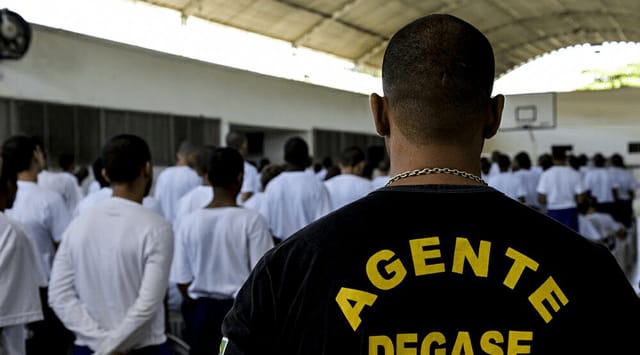By Henry Montalto, Contributing Reporter
RIO DE JANEIRO, BRAZIL – As of Monday, June 10th, nearly 400 juvenile delinquents from several detention facilities in Brazil will have been released. By order of the Supreme Court and under a new points program, hundreds of kids who committed lesser crimes will go free.
Degase, a state-run child welfare program which has facilities across multiple states, is responsible for implementing sociological-educational measures in juveniles, will start the release this week. This program oversees the rehabilitation of children in trouble with the law.

The Degase centers suffer from underfunded resources needed for officers and its juveniles. Specifically, overcrowding in hospitals and their facilities is a significant problem in Rio de Janeiro, Bahia, and Ceará.
On May 22nd, 2019, STF Justice Edson Fachin determined that the Degase hospitalization facilities in the states of Ceará, Bahia, Rio, and Pernambuco cannot exceed 119% of their respective capacities.
Therefore the recent decision on overcrowding by Justice Fachim helps the juveniles. Young offenders in Degase who committed minor crimes will be given a second chance.

Juvenile offenders, in particular those who haven’t committed a serious crime, will have a chance to go free — specifically crimes of minor theft, drug trafficking without a weapon and breaking and entering homes.
These crimes carry anywhere from 10 points for selling marijuana to 20 points for home invasion. Furthermore, crimes over 20 points will not be subject to release. Besides, behavior and family structure will play a major factor in the juveniles’ freedom.
As a result, school attendance, weekly check-ins, and work programs will be the requirements of their release. The success of juvenile offenders heavily relies on their families’ participation.
If a child doesn’t have a proper home structure, there can be no release. Stability is a priority in these cases. Above all, they will have the case analyzed before a judge at the public ministry. This will decide the future of said juvenile delinquents.
Backlash and disagreements could affect the releases and program. The Attorney General of Rio de Janeiro Marcelo Lopes has already appealed the decision, as has state prosecutor Flavia Ferrer, MP.

If the decision is granted the obligation to free the children by Fachin is upheld on appeal, the situation remains unchanged. However, if the appeal is won, this would mean recalling all kids released under the program back to the facilities.
How the state would go about a recall and what procedures would be in place are not yet known. It’s important to note that no juveniles released committed a major crime or felony. The state isn’t releasing hardened criminals into the city.
Consequently, this is something on the minds of these juveniles and their families. Why can’t a “bandit” become good? It’s a reality all too real that they face daily in Rio. For these children being good, simply isn’t enough in the political sphere of 2019 Brazil.

